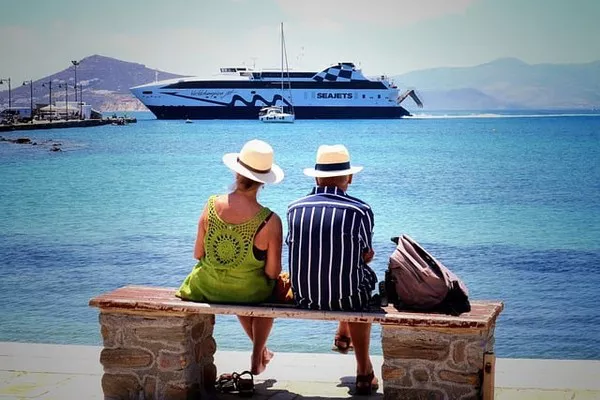Australia, known for its vibrant multicultural society and diverse landscapes, celebrates a wide array of holidays throughout the year. From traditional public holidays to culturally significant events, Australians embrace these occasions with enthusiasm, reflecting both historical roots and modern influences. This article explores the rich tapestry of Australian holiday culture, delving into popular celebrations, traditions, and the significance of these holidays in contemporary Australian life.
Introduction to Australian Holidays
Australia observes a mix of public holidays, cultural festivals, and significant days that hold both historical and contemporary importance. These holidays provide Australians with opportunities to celebrate, reflect, and come together as a community. Understanding the diversity of holidays in Australia reveals insights into the country’s history, values, and social fabric.
Public Holidays in Australia
Public holidays in Australia are legislated by each state and territory, with some days recognized nationally. These holidays typically include:
New Year’s Day (January 1st)
New Year’s Day marks the beginning of the calendar year and is celebrated with fireworks, parties, and gatherings across the country.
Australia Day (January 26th)
Australia Day commemorates the arrival of the First Fleet at Port Jackson in 1788, marking the establishment of British sovereignty over Australia. It is a day of national pride and controversy, with celebrations including citizenship ceremonies, community events, and fireworks.
Anzac Day (April 25th)
Anzac Day honors the members of the Australian and New Zealand Army Corps (ANZAC) who served and died in wars, conflicts, and peacekeeping operations. It is observed with dawn services, marches, and ceremonies to commemorate the sacrifices of servicemen and women.
Queen’s Birthday (Second Monday in June)
The Queen’s Birthday is celebrated with public events and ceremonies, although it does not necessarily coincide with the actual birthday of the reigning monarch.
Labour Day (various dates)
Labour Day varies by state and territory but generally honors the contributions of workers and the labor movement. It is a day for picnics, parades, and community activities.
Christmas Day (December 25th) and Boxing Day (December 26th)
Christmas Day and Boxing Day are significant Christian holidays celebrated with family gatherings, feasting, gift-giving, and recreational activities. Boxing Day is also known for shopping sales and sports events.
Cultural and Religious Holidays
Australia’s multicultural society celebrates a variety of cultural and religious holidays, reflecting the country’s diverse population. These include:
Easter (March-April)
Easter is a Christian holiday celebrated with religious services, family gatherings, and Easter egg hunts. Good Friday and Easter Monday are public holidays in Australia.
Chinese New Year (January-February)
Chinese New Year is celebrated by the Chinese-Australian community with dragon dances, lantern festivals, and traditional food to welcome the Lunar New Year.
Diwali (October-November)
Diwali, the Hindu festival of lights, is celebrated with prayers, fireworks, and feasting by the Indian-Australian community.
Ramadan and Eid al-Fitr
Muslim Australians observe Ramadan, the holy month of fasting, followed by Eid al-Fitr, a festive celebration marked by prayers, feasts, and charity.
NAIDOC Week (July)
NAIDOC Week celebrates the history, culture, and achievements of Aboriginal and Torres Strait Islander peoples. It includes cultural performances, art exhibitions, and community events.
Regional and Local Festivals
Australia’s diverse regions host unique festivals that celebrate local culture, heritage, and natural beauty. These festivals attract tourists and locals alike, contributing to the vibrant cultural tapestry of the nation. Some notable festivals include:
Sydney Festival (January)
The Sydney Festival is a major cultural event featuring arts, music, theatre, and dance performances held throughout the city.
Melbourne Cup Day (First Tuesday in November)
The Melbourne Cup is Australia’s most prestigious annual Thoroughbred horse race, celebrated with race day events, fashion parades, and social gatherings.
Adelaide Fringe Festival (February-March)
The Adelaide Fringe Festival is the largest arts festival in the Southern Hemisphere, showcasing theatre, comedy, music, and visual arts performances.
Darwin Festival (August)
The Darwin Festival celebrates the multiculturalism of the Northern Territory with outdoor concerts, theatre shows, and culinary events.
Modern Holiday Traditions
In addition to traditional and cultural holidays, Australians have embraced modern celebrations and global observances. These include:
Halloween (October 31st)
Halloween is increasingly popular in Australia, especially among younger generations, with costume parties, trick-or-treating, and themed events.
Valentine’s Day (February 14th)
Valentine’s Day is celebrated with romantic gestures, gifts, and dining out, reflecting global trends in expressing love and affection.
Mother’s Day and Father’s Day
Mother’s Day and Father’s Day are observed with gifts, cards, and special meals to honor parents and caregivers.
See also: When is Easter Holidays in Australia?
Conclusion
Australian holiday culture is a reflection of the nation’s rich history, multicultural diversity, and contemporary values. From public holidays that commemorate significant events in Australia’s past to cultural celebrations that embrace the country’s multiculturalism, each holiday holds meaning and significance for Australians nationwide. By understanding and participating in these holidays, Australians strengthen their sense of community, identity, and shared heritage, contributing to the vibrant tapestry of Australian culture.
By celebrating traditional, cultural, and modern holidays, Australians honor their past, embrace diversity, and create lasting memories with family, friends, and communities across the country. Whether observing national public holidays, participating in cultural festivals, or enjoying regional events, Australian holiday culture offers opportunities for connection, reflection, and celebration throughout the year.

